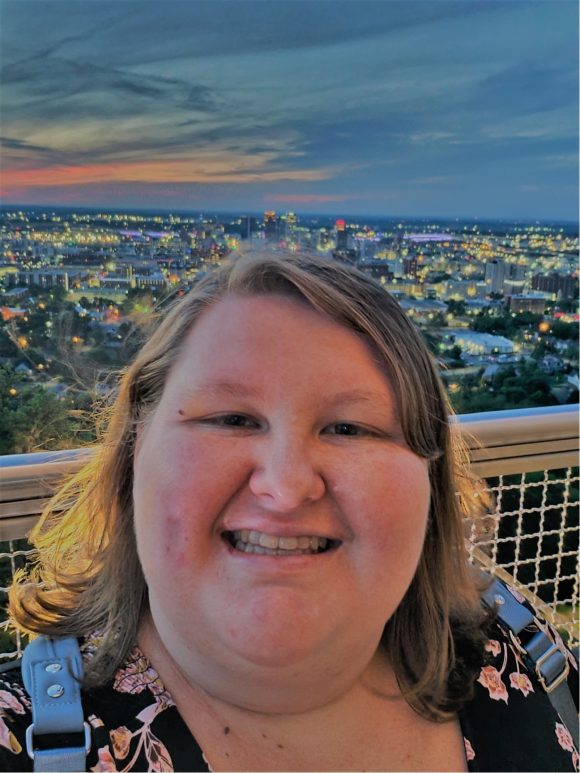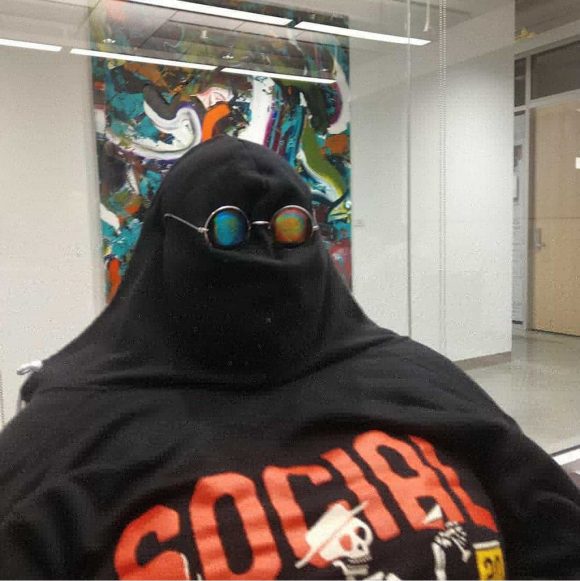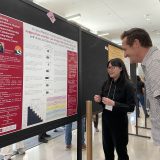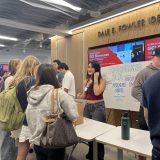The Benefits of Taking a Gap Year Alumni Spotlight: Abbigael Eli '20
June 21, 2021
 Abbigael Eli ‘20 graduated with a biochemistry and molecular biology degree and rhetoric and writing studies minor. During her time at Chapman, Eli was heavily involved around campus, acting as a supplemental instructor for Bio 208, a tutor for general chemistry and general biology courses, ACS Vice President, and was a student representative for the Schmid Student Leadership Council.
Abbigael Eli ‘20 graduated with a biochemistry and molecular biology degree and rhetoric and writing studies minor. During her time at Chapman, Eli was heavily involved around campus, acting as a supplemental instructor for Bio 208, a tutor for general chemistry and general biology courses, ACS Vice President, and was a student representative for the Schmid Student Leadership Council.
Without moving far from her hometown of Anaheim, CA, Eli was able to attend Chapman and begin her post-graduate career as a Lab Manager and Senior Research Assistant for the Environmental Geochemistry Lab at her alma mater. Eli was recently admitted to the University of Alabama at Birmingham, where she will begin her Ph.D. program in cancer biology starting in August 2021.
We asked Eli some questions about her time at Chapman, her career goals, and any advice she may have for other Schmid students!
Q&A with Abbigael Eli
SC: Tell us about your career. What do you do on a day-to-day basis?
In the past year, I have been working as the lab manager and senior research assistant in Dr. Chris Kim’s Environmental Geochemistry Lab, the KEG Lab! Additionally, I re-applied to various Ph.D. programs in the Fall of 2020 and was thankfully accepted to a program this round of applications. I am starting my Ph.D. training in cancer biology in August 2021 at the University of Alabama at Birmingham (UAB).
On a day-to-day basis, I am either working in the KEG Lab with our current students to assist with their individual research projects, or working from home on my own computational-based research project. Recently, I have been preparing to present a poster for this project at the Goldschmidt 2021 Geochemistry Conference.
What led you to your current role?
I was searching for employment in the summer months after graduation in 2020 and was contacted about this position by the KEG Lab’s previous manager, Emily Cauble. I interviewed with Emily and Dr. Kim, and the rest is history!
How has your Chapman degree helped you?
Although the focus of my biochemistry degree does not match the Environmental Geochemistry research I am currently doing, my Chapman education was instrumental to developing my ability to do high-quality research in general. All of the knowledge I use in my current position about how to correctly conduct scientific investigations and the best practices to collect hypothesis-driven data came from my Chapman degree.
What was a challenge you had as a student and how did you overcome it?
My biggest challenge as a student was actually during my first round of graduate school applications because I did not end up receiving any admission offers in 2020. It was the first time my career plans did not work out the way I expected, so I had to come to terms with the fact that I had failed to do something I had set my mind to do.
I overcame this challenge by taking some time to reflect on myself, on some reasons why I could have been rejected by each of the programs I interviewed with in Spring 2020. I came to the conclusion that taking a “gap year”, although unplanned, was really going to benefit me more than I thought because I would have the opportunity to gain more scientific independence and research experience.
What advice do you have for current students who want to make the most out of their time at Chapman?
My advice would be to get to know your faculty members! Schmid College, and other Chapman colleges, have absolutely FANTASTIC faculty and staff, so it never hurts to try to get to know some of your favorite faculty outside of the class environment. They always seem to have great advice for students and are very willing to help when you need guidance on a situation.
Which Schmid faculty member(s) made the greatest impact on you and how?
Drs. Melissa Rowland-Goldsmith, Elaine Schwartz, Cedric Owens, and Marco Bisoffi were completely responsible for teaching me all of the critical thinking skills that I have now. I owe all of my inquisitive-ness (even though that isn’t a word) to these four professors and their engaging course content and active-learning teaching styles. My current supervisor, Dr. Chris Kim, has also had the greatest impact on my scientific thinking abilities because of the questions he asks to prod my own experimental design. He is very much dedicated to helping me improve my independent thinking as a young career scientist!
 What is your favorite Chapman and/or Schmid memory?
What is your favorite Chapman and/or Schmid memory?
I really enjoyed spending time on Friday nights during the Fall of my senior year studying for physical biochemistry in the conference room on the second floor of Keck with my other classmates. Studying doesn’t sound like the most fun thing to do on a Friday night, but my friends made it much more enjoyable! Here is a picture that was taken of me while I was “taking a break” from studying during one of those Friday night sessions.
What was your favorite spot on campus as a student?
I really enjoyed the 3rd-floor hallway in the Keck Center; there was always something happening on the football field to watch while I was studying, and sometimes people on the field would even wave when they noticed us up in the windows!


